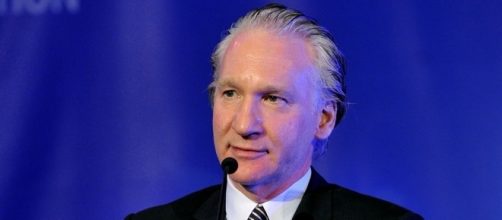Over the last week, the biggest story to dominate the news cycle has been the controversial executive order signed by Donald Trump that many have dubbed the "Muslim ban." As expected, critics of the new president quickly voiced their opposition, including comedian Bill Maher.
Maher on Trump
During the year and a half that he was on the campaign trail, Donald Trump vowed to take strict measures to combat Islamic extremism and its potential spread into the United States. Just days into his presidency, Trump followed through on his promise and signed the aforementioned "Muslim ban" executive order.
Instantly, backlash followed, resulting in massive protests breaking out at airports across the country after news broke that Muslim travelers were being detained inside. Since then, the Trump administration has had a difficult time defending the alleged ban, which was evident during a White House press conference with Sean Spicer on Tuesday afternoon. Despite this, Bill Maher decided to voice his thoughts with a January 31 post on Twitter.
Should the party that nominated Trump and Sarah Palin really even get to use the term "extreme vetting?"
— Bill Maher (@billmaher) January 31, 2017
Bill Maher has been a long time critic of Donald Trump, which has only increased since the former host of "The Apprentice" pulled off the upset win over Democratic nominee Hillary Clinton last November.
In response to the executive order and the administration's vow to engage in "extreme vetting," Maher didn't hold back.
Why it is absolutely correct to call Trump’s executive order a Muslim ban: https://t.co/NP6102VCK8 pic.twitter.com/n4cmqlQs8R
— Slate (@Slate) January 31, 2017
"Should the party that nominated Trump and Sarah Palin really even get to use the term 'extreme vetting?'" Maher tweeted out on Tuesday afternoon.
Maher's humorous tweet was in reference to former half-term Alaska Gov. Sarah Palin who was exposed as unprepared and not properly vetted when she was selected as the running mate for 2008 Republican nominee Sen. John McCain.
Next up
As Bill Maher continues to pile on Donald Trump, which is expected to continue on his HBO show "Real Time with Bill Maher" on Friday nights, it's unlikely that the new president will change his tune. With Trump and his critics only becoming further apart in their ideology and politics, the next four years is expected to be more of the same.

